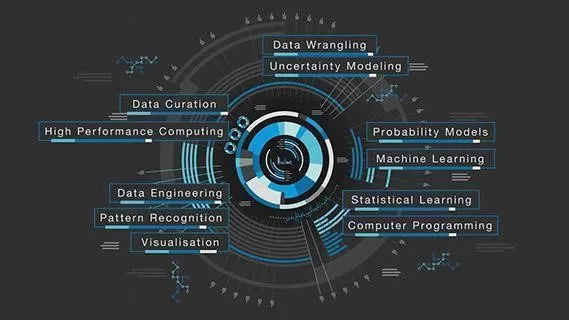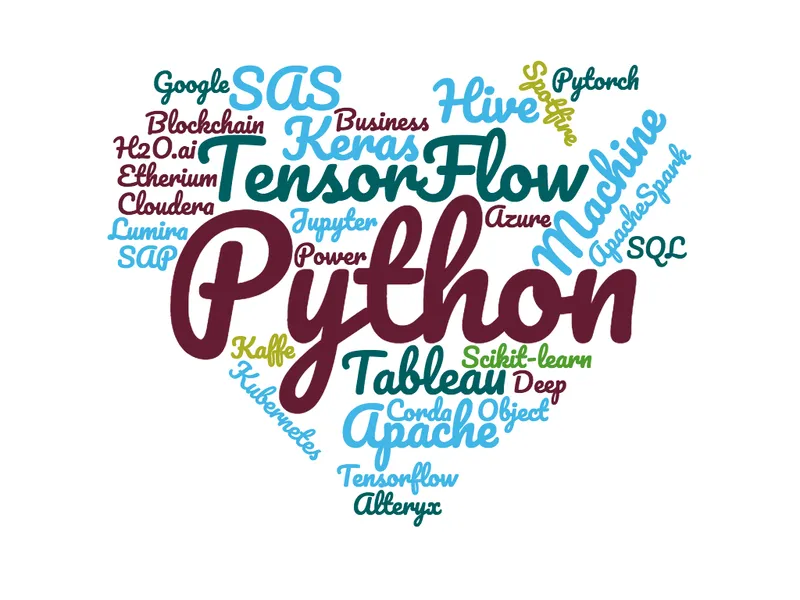How data scientists need to skill themselves to be relevant in business
It is imperative data scientists have a strong foundational knowledge and understand the business challenges and how data and technology can be leveraged to bring out the insights from data.

It was the time between April 2016 and 2017 when India woke up to the importance of data and the science behind it. If you didn’t know, the data science job market almost doubled within these 12 months, paving way for over 50,000 vacancies for skilled data science experts. Since then, there has been no turning back for the industry.
The best part about the vacancies associated with data science is that the demand for pros is high across the globe. According to IBM, the amount of requirement for niche data science experts will increase from 3,64,000 to 2,720,000 by the year 2020.

However, it was during the same year that something absurd happened with the Indian IT sector as well. Quartz India reported that the IT sector laid off over 56,000 employees across India. Companies like Infosys, TCS, Tech Mahindra and more retrenched their employees in the context of digitisation and automation and, in no time, some of the most popular skills in IT became irrelevant and redundant.
Now, we have a bipolar situation in front of us – stark demand for skilled data scientists and an IT talent pool with redundant skill sets.
Probable solution?
Upskill. Adapt. Evolve.
Data science is a lucrative industry that is also attracting huge volumes of skilled experts to take care of niche responsibilities. The best way to tackle retrenchment at this instance of time would be to adapt to the trending technologies like data science and shift to a more lucrative career path it offers. However, there is a notion that the process is easy.
Data science skills
At the heart of a data scientist’s career lies three essential skill sets –
- Foundational statistics
- Programming languages and tools
- Problem-solving acumen
Foundational statistics
The role of statistics is one of prime data science, and almost every decision and inference is born out of statistics and data interpretation. The randomness of data demands for statistics to deliver insights on crucial business aspects, and for a data scientist to come up with prescriptive or predictive analyses of data, you need to have solid foundational skills on statistics. Considering the fact that the current talent pool in IT is inept with concepts like probability, linear algebra, and regression techniques, the requirement to work on statistics concepts becomes inevitable.
Programming languages and tools

Programming is a fundamental requirement for a career in data science. Not mere exposure, but hands-on experience with programming languages and tools are necessary to make it big in the industry. Once in, you will make use of your stats skills and program augments using programming languages, analyse, dissect and interpret massive chunks of data sets (by massive we mean at least a million rows), and use your technical skills to build better analysis tools, visualisation techniques, formulate frameworks for automation, and do more.
A fresh and aspiring data scientist would typically start with one set of skills, Python/R/SAS to enter the industry and contribute to the business. A seasoned data scientist with years of experience in handling various data problems, using a varied set of tools and technologies, will typically acquire expertise across different tools/languages/platforms for data processing, cleaning, exploratory analysis, and machine learning.
One of the key areas for the data scientist is working with all sort of data.
Business acumen
Your expertise and strength in both statistics and technical skills would only get you started. However, to make a mark as a data scientist, it is imperative that you develop the right business acumen needed for business growth. Companies work on generating data touch points and analysing them for a reason – to understand crucial concerns associated with business operations and growth and recognise customer behaviour and deliver better services and experience.
With the data you have in hand, you should be able to bring sense out of it and find angles and approaches towards business growth and potential.
Communication
The inferences you made out of data should be communicated effectively to management and concerned authorities to make good use of the findings. This is exactly what
Data scientists should also have firsthand experience of data visualisation tools to make inferences interactive, precise, and intuitive, and aid the visuals for story-telling and recommendations.
Knowing the industry
There is very limited information available for data scientists to know what is the work happening as of today in the Indian businesses and Indian IT services.
The following areas in the respective industries is a summary of what leaders are solving as business problems.
Parting thoughts
They say if you give a wise man 10 hours to bring down a tree, he would spend nine hours sharpening his saw. That is exactly what an aspiring data scientist should do before venturing into a career in data science. Having strong foundational skills on what we discussed above forms one of the primary responsibilities of a data scientist looking to take the leap followed by understanding the business challenges and how data and technology can be leveraged to bring out the insights from data.
(Disclaimer: The views and opinions expressed in this article are those of the author and do not necessarily reflect the views of YourStory.)







